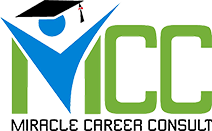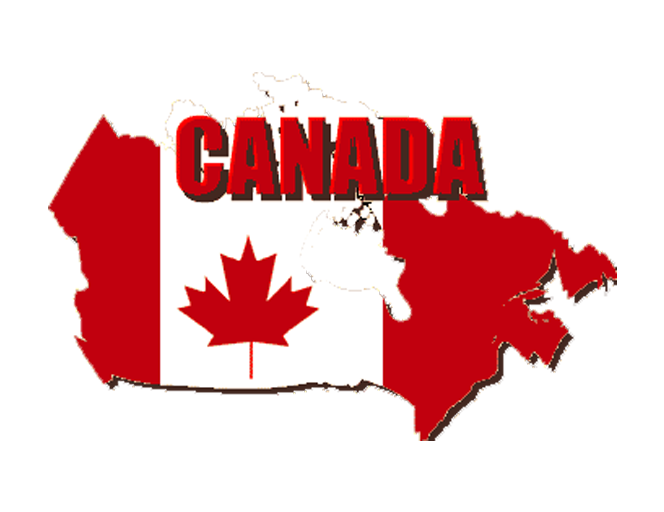Studying in Canada is not free, but it is affordable. Canada offers the lowest tuition rates for foreign students compared to the U.K., Australia, New Zealand and the US. Rates at U.S. public universities were almost 1/3 higher than fees for Bachelor’s degrees in Canada, while U.S. private university fees were more than double.
The United Nations ranked Canada as the best place in the world to live! This assessment was based upon Canada’s achievements in terms of educational attainment, life expectancy, national income and general quality of life. It also included Canada’s abundance of fresh water, comfortable population density, low incidence of violent crime and a health care system that is a model for the world.
Related article: Checklist for Canada
Canada’s education system is excellent and ranks among the best in the world. Canada boasts a wide range of quality educational institutions for both degrees and diplomas in technical and professional disciplines. Over 106,000 international students attend Canadian colleges and universities. This means that you can meet people from around the world as well as people from your own country.
International students who have graduated from a Canadian university or college have the opportunity to work in Canada for up to one year after they receive their degree or diploma. International students can work on campus without a work permit. Plans are being made to allow international students to work off-campus, too.
Through our Counseling & Students Recruitment Department, Britain International Academy has been successfully placing hundreds of students every year to study at reputed College/ Universities of the Canada. Britain International Academy has been providing following services to students who wish to study in the Canada:
- Assit students with practical matters
- Assist to choosing a degree, right course selection & processing students’ application documents
- Helping students make appropriate visa documentation as per the Canadian high commission requirement.
- Helping students apply for a visa at the Canadian High Commission.
- Make students’ travel and accommodation arrangements.
- Provide pre-departure orientation to students who have secured student visa.
On January 1, 2015, the Government of Canada introduced the Express Entry application management system with the aim of:
- Better managing application intake;
- Improving processing times;
- Increasing responsiveness to labour market demands.
Additional updates have been made since, including the following:
- You can now earn additional points for study in Canada;
- A valid job offer now only needs to be for one year, and some job offers no longer need an LMIA;
- The amount of points you get for a job offer has changed;
- You now have 90 days to apply instead of 60.
(http://www.cic.gc.ca/english/express-entry/index.asp)
Express Entry is used to manage applications for permanent residence under these federal economic immigration programs:
- The Federal Skilled Worker Program;
- The Federal Skilled Trades Program;
- The Canadian Experience Class.
Note: If a candidate is interested in immigrating to Quebec, they need to contact that province directly because Quebec manages its own economic immigration programs.
Completing an Express Entry profile is the first step to immigrating to Canada permanently under the following programs:
- Federal Skilled Worker Program
- Federal Skilled Trades Program
- Canadian Experience Class
To be eligible for Express Entry, candidates need to meet the criteria of at least one of these programs.
Provinces and territories can also recruit candidates from the Express Entry system through their Express Entry Provincial Nominee Program to meet local labour market needs. Please see: cic.gc.ca/english/immigrate/provincial/index.asp
In addition to a degree, there may be other requirements to work in certain fields in Canada. IRCC’s workbook will help candidates understand what is required to find work in Canada. Please see: cic.gc.ca/English/pdf/pub/workbook-national.pdf
International students interested in becoming a permanent resident should follow these steps:
PREPARE
- Apply for a post-graduation work permit;
- Gain one year of Canadian work experience at the NOC 0, A or B level;
- Pass an approved language test.
EXPRESS ENTRY
Step 1
- Create your Express Entry profile;
- Register with the Job Bank and promote yourself to employers;
- Get accepted into the Express Entry Pool (if you meet the minimum criteria).
Step 2
If you are among the top ranking in the pool, you will receive an Invitation to Apply.
International students are well placed for success under the Express Entry system because of their high education, Canadian work experience, strong official language skills, and youth. They can transition to permanent residence through any of the programs under Express Entry for which they meet the requirements, including the Canadian Experience Class, the Federal Skilled Worker Program, the Federal Skilled Trades Program, or the Provincial Nominee Programs.
To learn more about Express Entry, visit http://www.cic.gc.ca/english/express-entry/index.asp.
Paid Authorized Immigration Representatives
Students may want to pay an authorized immigration representative to act on their behalf with Citizenship and Immigration Canada (IRCC). Paid immigration representatives would be able to perform functions for the student such as:
- Representing them during an immigration proceeding by speaking on their behalf;
- Providing guidance to them on how to select the best immigration stream and complete the appropriate forms.
Student wanting more information on the option of using a paid immigration representative can visit this link: www.cic.gc.ca/english/information/representative/rep-who.asp.
Students wanting information about working on campus at the institution in which they are enrolled should go to this link: www.cic.gc.ca/english/study/work-oncampus.asp.
For information on working off-campus, they should visit this link: http://www.cic.gc.ca/english/study/work-offcampus.asp.
For information on co-op work placements and internships, this is the link: http://www.cic.gc.ca/english/study/work-coop.asp.
And for information on staying in Canada to work after graduation, students should visit this link: http://www.cic.gc.ca/english/study/work-postgrad.asp.
Work for Spouses: There may be work for the spouses of international students while they study in Canada. For more information, students can visit http://www.cic.gc.ca/english/study/work-spouse.asp.







